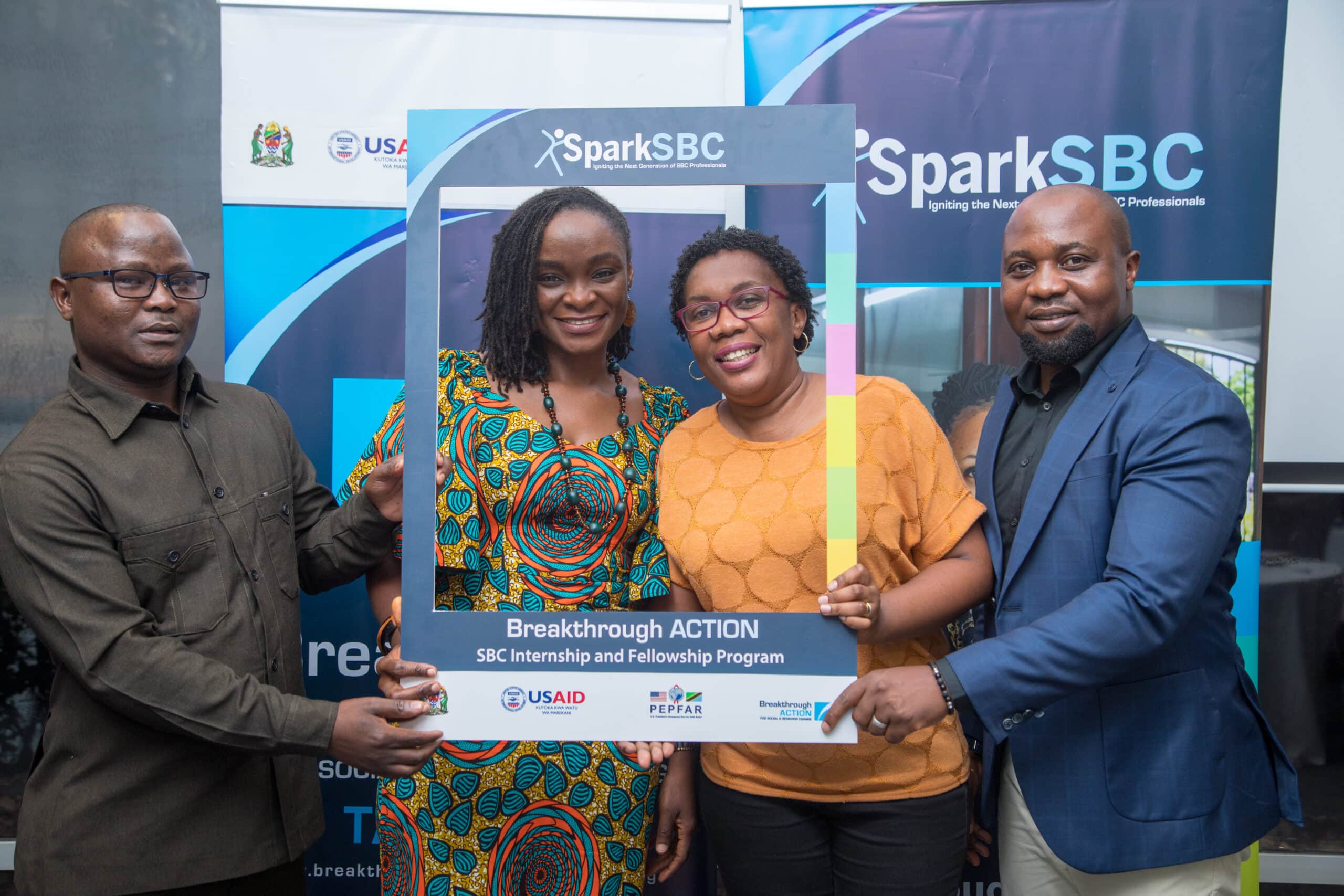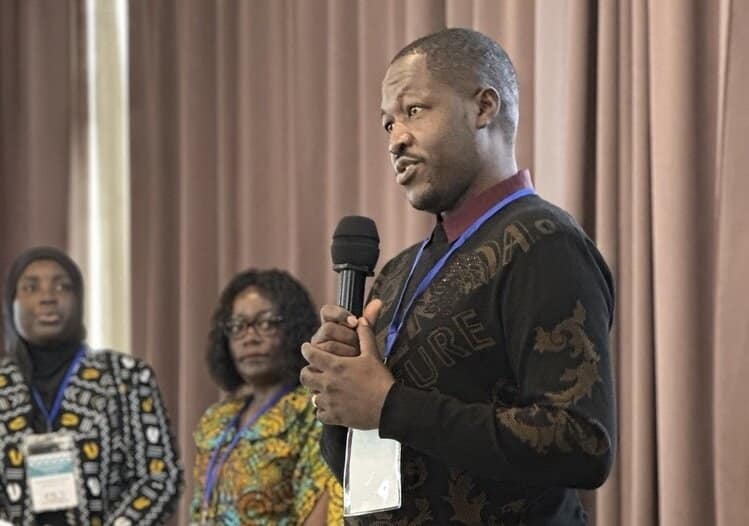During a USAID-funded project in Tanzania that ended in 2016, the Johns Hopkins Center for Communication Programs created an internship program in social and behavior change communication (SBC) to help boost those skills in young people and make them more employable in a challenging job market.
The ACE (Advancing Communication Experientially) mentoring program trained more than 200 young Tanzanians, equipping them with the skills needed to support and develop SBC interventions in the country. The program aimed to improve the health status of Tanzanians and their communities by transforming social and cultural norms and supporting the adoption of healthy behaviors.
Now, the CCP-led Breakthrough ACTION project has reimagined and relaunched what is being called the SPARK program, a social and behavior change (SBC) internship and fellowship program aimed once again at enhancing the capacity of young professionals in SBC for health.
“With the increasing importance of behavior change interventions in achieving public health goals, it is essential to have a skilled workforce capable of designing and implementing effective SBC interventions,” says CCP’s Nicole Kapesi, a technical advisor for capacity strengthening and coordination for Breakthrough ACTION in Tanzania. “This program will help to further seed the SBC community with a crop of freshly trained and committed professionals.”
The inaugural Breakthrough ACTION SBC internship and fellowship cohort has a total of 10 participants comprising of five interns and five fellows, who are employees of Tanzania’s Ministry of Health. It is expected that the program will run from March to August 2023, with the possibility of a six-month extension for interns, who will be placed with local NGOs, implementing partners as well as within Breakthrough ACTION. SPARK interns are new graduates, while fellows are mid-career professional who will hone their skills though mentoring, training, and intensive professional development.
The original ACE program was developed under the CCP-led Tanzania Capacity and Communication Project (TCCP), which ran from 2010 to 2016.
“The SPARK internship and fellowship program is a model for building the capacity of the next generation of social and behavior change professionals,” CCP’s Waziri Nyoni, the chief of party for Breakthrough ACTION Tanzania, said at a recent launch event. “Through hands-on experience and blended learning opportunities, young professionals will gain the skills and knowledge they need to drive innovation, progress and sustainability in the health sector. We …look forward to its positive impact on health outcomes.”
Said Ifeyinwa Udo, the community team lead for the USAID Health Office in Tanzania, at the same event: “The U.S. government is committed to ensuring that we build a skilled workforce in the health and development sector. Today, we are witnessing a remarkable program that gives hands-on opportunities to graduates in the field of social and behavior change. … I would like to commend the Breakthrough ACTION project for this initiative.”
In 2013, Wilhard Bantanuka was fresh out of school when he was an ACE intern. A decade later, he is a program manager at Viamo Tanzania. He credits that internship for his career success.
“I’ll never forget the incredible experiences that the ACE internship program gave me,” Bantanuka said. “It was a life-changing opportunity that not only provided me with invaluable knowledge and skills, but also helped me land a job even before the program ended! To all the future interns out there, my advice is simple: be proactive, go above and beyond what you’re learning in the program, and don’t be afraid to make mistakes. You never know what doors might open up for you.”





